If your old PC can’t handle the latest AAA games or if that noisy laptop with its terrible battery life is giving you a headache, it’s certainly time to spoil yourself with a cheeky upgrade. However, it’s the age ol’ question. Do you go for a PC or a gaming laptop?
To help you make this impossible decision, we’ve put together this handy helpful detailing the key differences along with their pros and cons. Hopefully, by the time you’ve finished reading, you’ll be ready to choose – Gaming PC vs Laptop?

Desktops vs Laptop: Best for Portability?
The most immediate difference between the two is portability. Unsurprisingly the clear winner here is a laptop. Gaming laptops have always been more portable but improvements in technology mean they are considerably lighter and far more compact than ever. Even with such a small chassis, they are capable of incredible desktop worthy performance and also have the benefit of built-in peripherals in one tiny package.
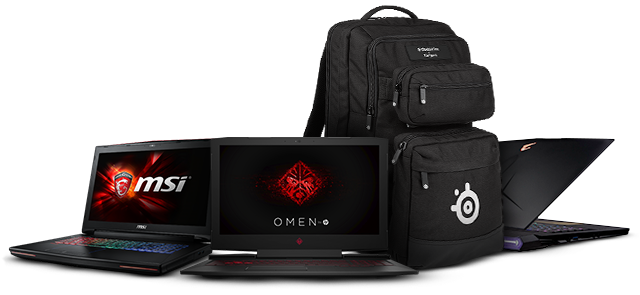
If you travel often or are a student a laptop is the perfect companion as it facilitates work or play wherever you are. You can’t really take your desktop to a coffee shop, on the train or airplane. Laptops are also more suited to small spaces and can easily be packed away when not in use. In addition to this laptops are ideal for those of you who love to attend LAN events – no risk of damage during transport and less weight to carry!
Desktops vs Laptop: Best for performance?
In the past, it was very difficult for manufacturers to squeeze desktop performance into a laptop sized chassis however today laptops can be on par with their desktop counterparts. Previously laptops used massively cut down versions of components but with technology such as Nvidia Max Q and Intel DTT means powerful components can be shrunk for use in laptops. Regardless there are still limitations when it comes to power and cooling which reduces their potential. However, one benefit of these limitations is better efficiency and a laptop will use less power than a desktop making them kinder on your electricity bill. Another thing to consider is that laptops are more expensive than a similar spec computer and the best components will never be available in a portable size. Top-end performance for desktops is faster and more effective making desktop the winner here.
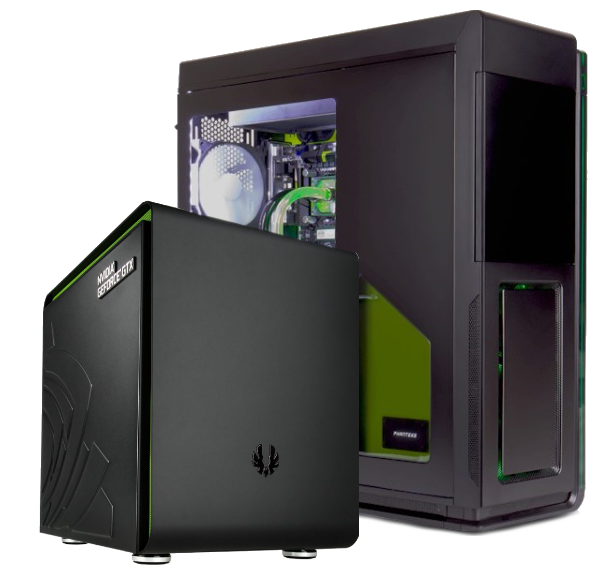
Desktops vs Laptop: Best for Upgradability?
Desktops are greater in size and the components are larger and more easily accessible. Everything is modular and new generations of hardware are often compatible with older tech. For example, AMD has ensured that 3rd gen Ryzen CPUs are backward compatible with older motherboards. This means with the right knowledge individual components can easily be swapped and upgraded without the need to buy a whole new PC. This also makes them much cheaper and easier to repair if a component fails.
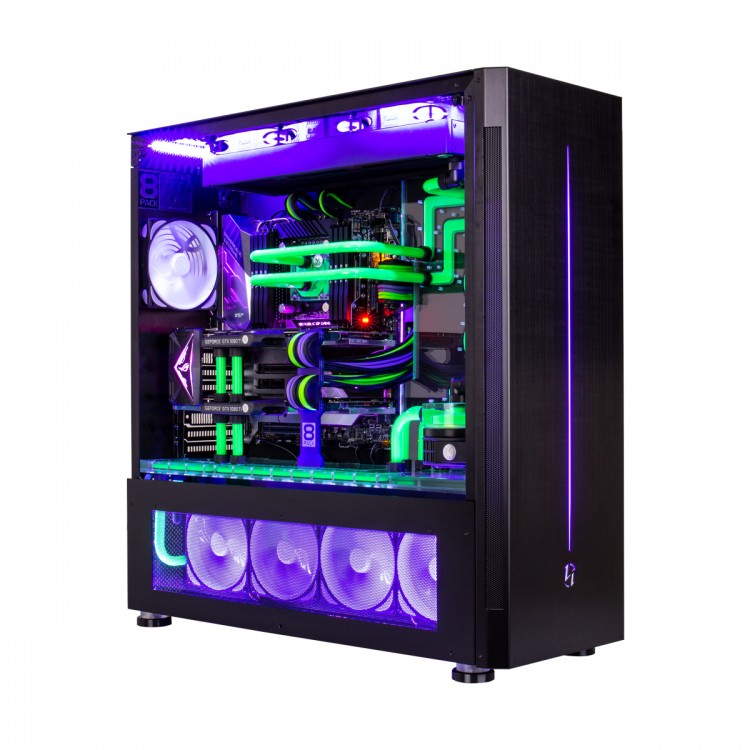
Laptops aren’t anywhere near as upgradable as a PC due to main parts like the CPU and GPU being soldered to the motherboard. In spite of that some of the core components in most laptops such as RAM, SSDs and HDDs can be upgraded. This provides a temporary solution if you’re running out of memory or storage and a fast SSD can also improve responsiveness. However, most computing performance, particularly for gaming, comes from the CPU and GPU which can rarely be changed in a laptop. Laptop repair is also difficult and often requires expert tools and knowledge.
Desktop vs Laptop: Most Customisable?
Laptops are made to be compact and because of this, the components are all made a fixed size to specifically fit inside a certain space. When you purchase a laptop you can choose what specifications it comes with but there is very little room for change. Every single part is built-in from the processor to display, graphics card and keyboard. Any customisation has to come in the form of external peripherals such as a 144Hz monitor or a mechanical keyboard.
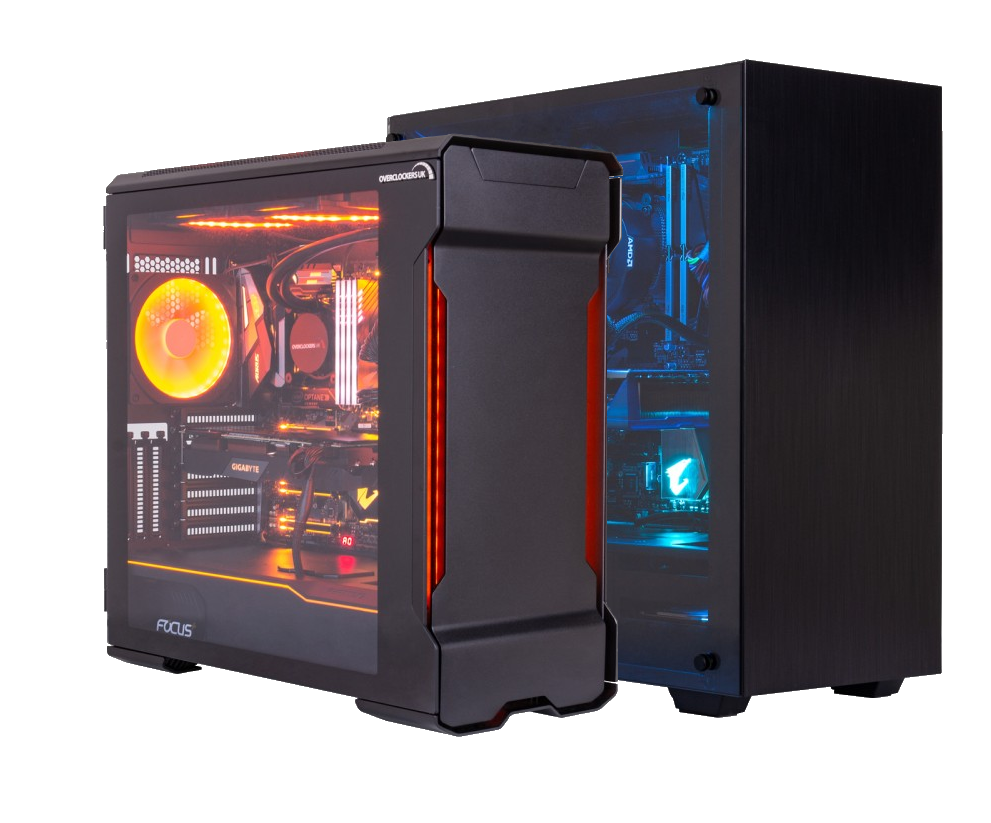
Desktops are the clear winner when it comes to personalisation. If you build your own PC you can choose everything and truly make it your own. Whether you want a small, portable budget ITX system or a monstrous full tower with a custom loop it’s possible. There is a huge range of cases, fans, lighting, and colourful components to choose between and PCs can be modified in unlimited ways when it comes to aesthetics. Optimising performance for specific games is also possible. By following recommended spec lists which give a full list of components you can assemble to create a system dedicated to playing your favorite game.
Desktop vs Laptop: Best Value For Money?
As mentioned previously laptops are more expensive than their PC counterparts. Often components can even have similar names such as the mobile i7-9750H and the desktop i7 9700K but the laptop version is costly and in this case 29% slower. Spending £1000 on a gaming PC will procure you much more performance than spending a similar amount on something more portable. Because of this, the value winner is the desktop PC. However laptops are a complete package, there is no need to purchase external parts such as a monitor, keyboard, speakers or mouse. Although I’d never want to try gaming on a touchpad.
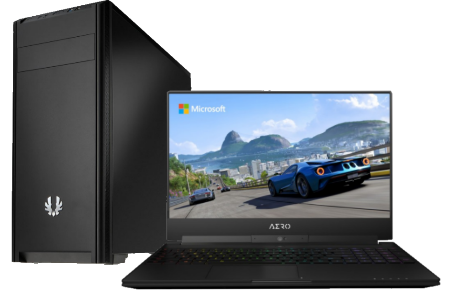
What’s better for gaming? A desktop or Laptop?
Deciding an overall winner all depends on how important portability is to you. A desktop wins when it comes to performance, price, customisation, and future-proofing but cannot be used without an outlet or external peripherals. You’re also going to need more space and a dedicated area for your gaming PC to live. Gaming laptops are much more flexible and if you travel often or don’t have room for a permanent desk they are the perfect companion. However, you might have to upgrade more often and pay a higher price for the same performance. Another option is to simply have both and split your budget. A powerful gaming PC at home teamed with a small, affordable notebook for work on the go.
Buying Guide
If you managed to figure out what package you’d prefer your hardware to come in the next step is to choose what other features your new PC or laptop should have. All Laptops and Desktops vary massively when it comes to hardware, aesthetics, and price. We’ve picked out a few different examples to match several different use cases depending on performance and budget.

Budget
You don’t have to compromise on performance or aesthetics just because you are on a budget. You can find plenty of high-quality laptops and gaming PCs that come packed will everything you need without breaking the bank.
Refract Gaming Amber Pre Built PC
- Designed for casual gaming
- AMD Ryzen 5 7500F CPU and NVIDIA RTX 4060
- 16GB DDR5 RAM
- Integrated RGB lighting


MSI GF63 Gaming Laptop
- 15.6” FHD
- 144Hz refresh rate
- Intel i5 12450H CPU and NVIDIA RTX 4050
- 16GB DDR4 RAM
- Windows 11 Home
Casual Gaming
For those who want to play games such as Fortnite, Overwatch, or Stardew Valley, you don’t need a PC or laptop with too much fire power. A casual entry-level option is the perfect choice for you. It’ll include all the hardware you need, plenty of aesthetics, and be friendly to the ol’ purse strings. Win, win, win.
Gigabyte AORUS 16XC Gaming Laptop
- 16.0” QHD display
- 165Hz refresh rate
- Intel i7 13650HX CPU and NVIDIA RTX 4060
- 16GB DDR5 RAM
- Window 11 Home

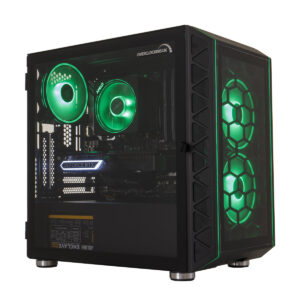
Refract Gaming Jade Pre Built PC
- Pre built PC
- Designed for mid-tier gaming and budding content creators
- AMD Ryzen 7 7700 CPU and NVIDIA RTX 4060 Ti
- 32GB DDR5 RAM and 1TB M.2 SSD
- Integrated RGB lighting
Enthusiast Gaming
Alternatively, for enthusiast-grade gaming, we know you want all the latest cutting-edge tech. From high-powered processors, fast RAM, and GPUs capable of rendering your games in stunning hyper-realistic quality, this laptop and PC have it all.
Refract Gaming Indigo Pre Built PC
- Pre built PC
- Designed for elite-tier gaming and streaming
- AMD Ryzen 9 7900X3D and NVIDIA RTX 4080
- 32GB DDR5 RAM and 1TB M.2 SSD
- Integrated RGB lighting
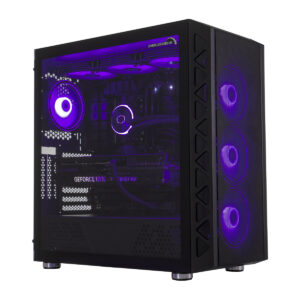

ASUS Zephyrus M16 Gaming Laptop
- 16.0” WQXGA display
- 240Hz refresh rate
- Intel i9 13900H CPU and NVIDIA RTX 4080
- 32GB DDR5 RAM
- 1TB SSD
Creatives
We can’t forget about the creative professionals out there. You need a PC or laptop that can effectively handle all your demanding workloads and multiple applications simultaneously. With our top selections below, you can do just exactly that.
MSI Creator Z17 Laptop
- 17.0” QHD display
- 165Hz refresh rate
- Intel i9 14900HX CPU and NVIDIA RTX 4070
- 64GB DDR5 RAM
- Windows 11 Pro

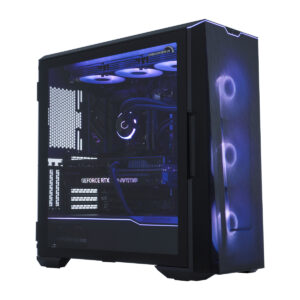
Refract Gaming Ultraviolet Pre Built PC
- Pre built PC
- Designed for elite-tier gaming and high-quality streaming
- AMD Ryzen 9 7950X3D and NVIDIA RTX 4090
- 32GB DDR5 RAM
- 2 x 1TB M.2 SSD
- Integrated RGB lighting
Gaming PC vs Laptop – Which Did You Go For?
Gaming PC vs Laptop – which one did you buy and why? Let us know in the comments.
*Prices correct at time of writing and PC specs are subject to change.
